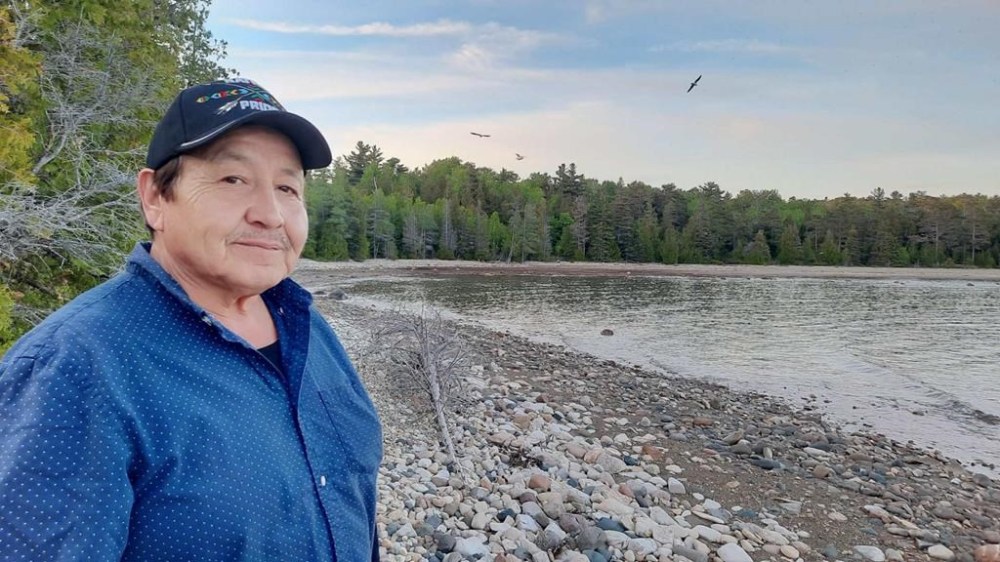Translators to deliver Pope’s words in languages forbidden in residential schools
Advertisement
Read this article for free:
or
Already have an account? Log in here »
To continue reading, please subscribe:
Monthly Digital Subscription
$19 $0 for the first 4 weeks*
- Enjoy unlimited reading on winnipegfreepress.com
- Read the E-Edition, our digital replica newspaper
- Access News Break, our award-winning app
- Play interactive puzzles
*No charge for 4 weeks then billed as $19 every four weeks (new subscribers and qualified returning subscribers only). Cancel anytime.
Read unlimited articles for free today:
or
Already have an account? Log in here »
Hey there, time traveller!
This article was published 23/07/2022 (843 days ago), so information in it may no longer be current.
EDMONTON – Now that Pope Francis has arrived in Canada and is expected to beg forgiveness for Catholic-run residential schools, a team of translators is dedicated to making sure no words are lost for those receiving the apology.
Henry Pitawanakwat, who comes from the Three Fires Confederacy of Manitoulin Island in Ontario, is on that team and will translate the Pope’s words into the Ojibwa language.
From the late 1800s until 1996, Canada removed Indigenous children from their homes and forced them into institutions run by church staff where they were forbidden from speaking their language.

Pitawanakwat’s mother was a residential school survivor, which he says also impacted him. And he says he suffered abuse and trauma from members of the Jesuits as a youth.
Still, he says it’s important to him not to let his own feelings get in the way as he translates the Pope’s words into a language children were once punished for using.
“I have to set those feelings aside because I’m a professional translator and I will do my due diligence to do a proper translation regardless of what topic is spoken,” Pitawanakwat said in an interview Saturday, a day before the Pope began his Canadian visit in Edmonton.
With experience as an archeologist at Wikwemikong Unceded Territory in Ontario and a curator at the Canadian Museum of History in Gatineau, Que., Pitawanakwat is a member of the Translation Bureau with the Government of Canada and has translated the federal election debates in 2019 and 2021 and also recently for an APTN series.
Francis, who is from Argentina, speaks Spanish, so Pitawanakwat says another interpreter will translate what the Pope says into English before he and other interpreters translate those words into a dozen Indigenous languages.
Web links for each language will then be available for people to listen to the translations in real-time.
“The language has always been my passion. I’ve always been interested in it,” Pitawanakwat said. “As a young student in school I realized that we had a different concept and a different perspective in the language.”
Translating a religious event will have challenges, he said. A lot of Bible words don’t have corresponding words in Ojibwa. But he says the general context is the same – prayers in both cultures are for the same reason: forgiveness and letting go.
Even though Pitawanakwat remains impartial for the translation process, he’s hoping to hear more than just an apology from Francis. He wants a commitment to supporting Indigenous language and culture.
Preserving Indigenous languages is important, he said, not just to remember the past but to save the future. The languages, he said, hold knowledge for solutions to current problems like climate change and pollution.
“I would like to see some funding towards language. Help us create immersion schools where we can bring back our own language,” Pitawanakwat said. “Because it was directly from the residential school that we lost our language and our culture.
“An apology for him, it’s over. For us, the trauma and the pain continues for life.”
This report by The Canadian Press was first published July 24, 2022.
Note to readers: This is a corrected story. A previous version said Pitawanakwat was an archeologist at the Canadian Museum of History. He was, in fact, an archeologist at Wikwemikong Unceded Territory in Ontario and a curator at the Canadian Museum of History
The Free Press acknowledges the financial support it receives from members of the city’s faith community, which makes our coverage of religion possible.


